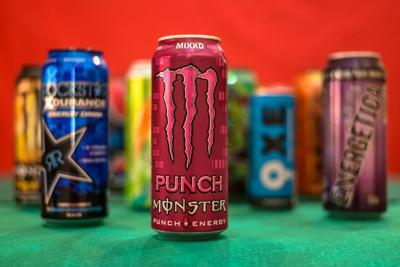A common ingredient in energy drinks has been linked to the progression of blood cancer, according to new research published in Nature that raises concerns about these beverages. Taurine, an amino acid naturally found in meat and fish that helps balance fluids, salts, and minerals as explained by the Mayo Clinic, may promote the development of leukemia cells. People reports that the study found taurine "significantly accelerates disease progression" in mice, making them around three times more likely to die, indicating it can promote leukemic progression.
Cancer cells consume taurine, which triggers glycolysis (breaking down glucose for energy), further fueling cancer growth. The research discovered that blocking taurine from entering cancer cells impaired leukemia growth in both mouse models and human leukemia cell samples. Scientists from the University of Rochester conducted this groundbreaking work, as mentioned in People's coverage of the findings.
The Nature publication details that researchers used temporal single-cell RNA-sequencing to identify molecular cues from the bone marrow stromal niche that engage leukemia stem-enriched cells during cancer progression. Their analysis identified the taurine-taurine transporter (TAUT) axis as a critical dependency of aggressive myeloid leukemias. The research team discovered that cysteine dioxygenase type 1 (CDO1)-driven taurine biosynthesis is restricted to osteolineage cells and increases during myeloid disease progression. The Nature study also showed that blocking CDO1 expression in these cells impairs leukemia stem cell growth and improves survival outcomes.
Using TAUT genetic loss-of-function mouse models and patient-derived acute myeloid leukemia cells, researchers demonstrated that TAUT inhibition significantly impairs myeloid leukemia progression. According to the scientific article in Nature, TAUT inhibition synergizes with venetoclax, a cancer drug, to block the growth of primary human AML cells. This finding is particularly relevant because TAUT expression is elevated in venetoclax-resistant acute myeloid leukemia.
The University of Rochester Medical Center explains that leukemia cells cannot produce taurine themselves, so they rely on a taurine transporter (encoded by the SLC6A6 gene) to capture taurine from the bone marrow environment. This discovery occurred as scientists were mapping the bone marrow ecosystem, a longtime focus of Wilmot researchers who have been advancing the science around the microenvironment to improve blood cancer treatments. Dr. Jeevisha Bajaj, assistant professor in the Department of Biomedical Genetics and a member of Wilmot's Cancer Microenvironment research program, expressed excitement about these studies, as noted by the University of Rochester.
The research showed taurine transporter expression is essential for the growth of multiple leukemia subtypes including acute myeloid leukemia, chronic myeloid leukemia, and myelodysplastic syndromes, which all start from blood stem cells in the bone marrow. What makes this finding particularly noteworthy is that taurine is not only naturally present in the body but is also a key ingredient in energy drinks and protein powders. University researchers point out that taurine has even been used by some cancer patients, though the research in this area is still developing.
Dr. Jane Liesveld, a Wilmot oncologist who treats leukemia patients and co-authored the Nature paper, noted that scientists still have much to learn about how leukemia cells are reprogrammed and gather energy to thrive and resist treatments. She cautioned about using high-dose taurine supplementation based on these findings. The University of Rochester team concluded in their paper that since taurine is commonly found in energy drinks and often provided as a supplement to reduce chemotherapy side effects, careful consideration should be given to supplemental taurine use in leukemia patients.
Sources:
https://people.com/common-energy-drink-ingredient-linked-to-blood-cancer-11735858
https://www.nature.com/articles/s41586-025-09018-7
https://www.urmc.rochester.edu/news/story/a-downside-of-taurine-it-drives-leukemia-growth








(0) comments
Welcome to the discussion.
Log In
Keep it Clean. Please avoid obscene, vulgar, lewd, racist or sexually-oriented language.
PLEASE TURN OFF YOUR CAPS LOCK.
Don't Threaten. Threats of harming another person will not be tolerated.
Be Truthful. Don't knowingly lie about anyone or anything.
Be Nice. No racism, sexism or any sort of -ism that is degrading to another person.
Be Proactive. Use the 'Report' link on each comment to let us know of abusive posts.
Share with Us. We'd love to hear eyewitness accounts, the history behind an article.